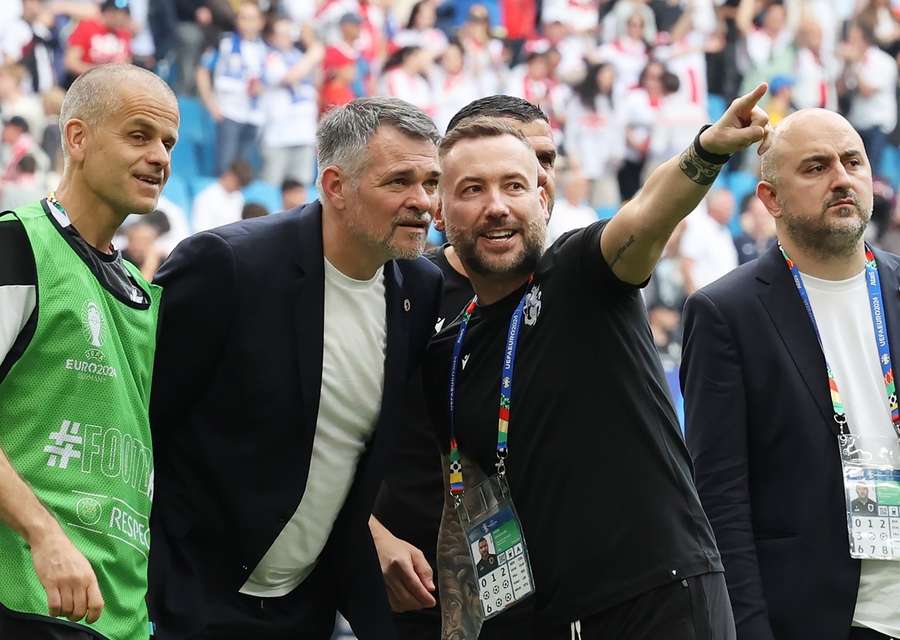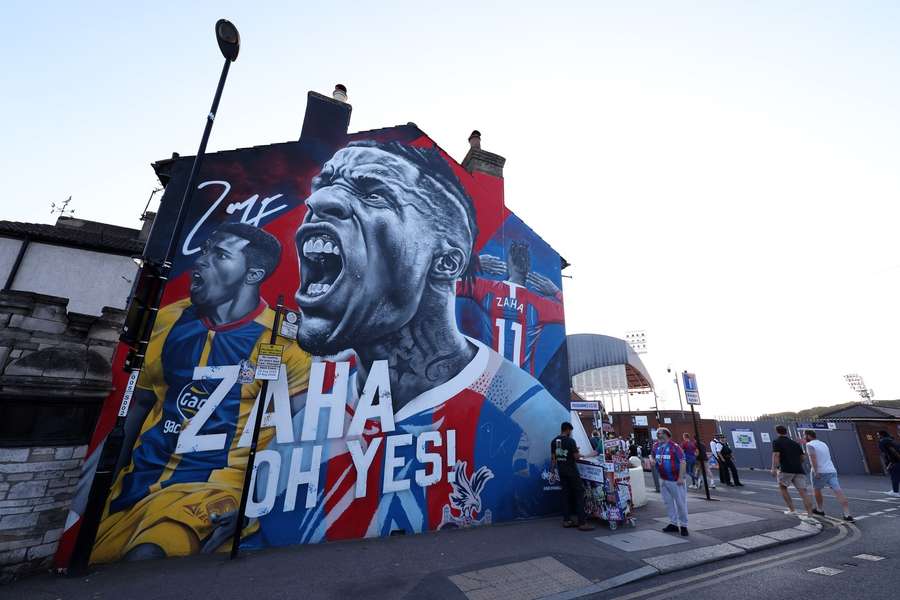Webb is now with the Georgian national team, but previously held various scouting and coaching roles in England for two decades.
After starting at AFC Wimbledon, Webb moved on to Crystal Palace in 2002 as an academy coach and scout coordinator with a growing knowledge of the youth football scene in London, which would lead him to discover Wilfried Zaha.
The then 10-year-old was playing for Whitehorse Wanderers in west Croydon and was spotted after a recommendation from Webb's younger cousin.
"I was at Crystal Palace at the time. I was actually alerted to him by my younger cousin, who was playing in the same team as him," recalled Webb.
"I didn't have a game on a Sunday, so I went to watch this particular team, and yeah, Wilfried stood out because he was very quick, very dynamic, very raw, but also very skilful.
"You could see even at 10, 11 years of age, he had potential, so I thought that was worthy of requesting him to come in and have a six-week trial at Crystal Palace.
"I think what made him stand out in particular was his strength of character, especially from a young age. He always had the talent that, with most young players, if they get the right environment, they can certainly prevail."
Club legends
As the cliche goes, the rest is history.
Zaha went on to rise through the ranks at Crystal Palace and make 458 appearances across two spells - either side of a disappointing move to Manchester United.
The Ivorian cemented himself as a legend in south London and perhaps goes down as one of the Eagles' greatest-ever players, now plying his trade in MLS with Charlotte FC in the latter stages of his career.
Webb didn't just impact Zaha's career. In stints with Bournemouth and Tottenham, the coach also played his part in signing Callum Wilson and Heung-min Son - both of whom would also achieve legendary status at their respective clubs.
That sort of development is no small feat, and something the former scout takes plenty of pride in.
"When I was at Bournemouth, we were recruiting players like Callum Wilson, who went on to have a very solid career," Webb said.
"Son at Tottenham, I was involved in that recruitment process. He'd go on to achieve legendary status at Tottenham, so it is very satisfying when you played a role, especially in helping him come to the club through the recruitment process.
"To see him go on to achieve good things, these are always rewarding from the job you too."
Combining coaching with sports psychology
Navigating the worlds of scouting and coaching can prove difficult, but Webb has an edge when compared to his counterparts.
On top of over two decades of experience at various levels of the game, from Wimbledon to Southampton and Ostersund to Tottenham, the coach has a master's degree in sports psychology.
Being able to delve deeper into how players are feeling and the science behind that gives an advantage when it comes to both scouting and coaching.

"It was something that I'd always been interested in from a very young age, it's a big part of the game, man management of players and staff, how they are.
"It certainly can give me an advantage sometimes, knowing some of the science behind that, and especially the way we've evolved into football now, there's been generational mixes of players and players need different types of management in different types of situations. So it would definitely help with that.
"It definitely helps in terms of the way I want to coach and manage to give that understanding that every player is different, every player's a human being, every team is different, and you have to go in with an open mind and having that little bit of knowledge base behind that can help going into a situation or a club or a country and help understand a little bit more from their perspective rather than just mine."
Read the first part of Flashscore's interview with Webb now.


